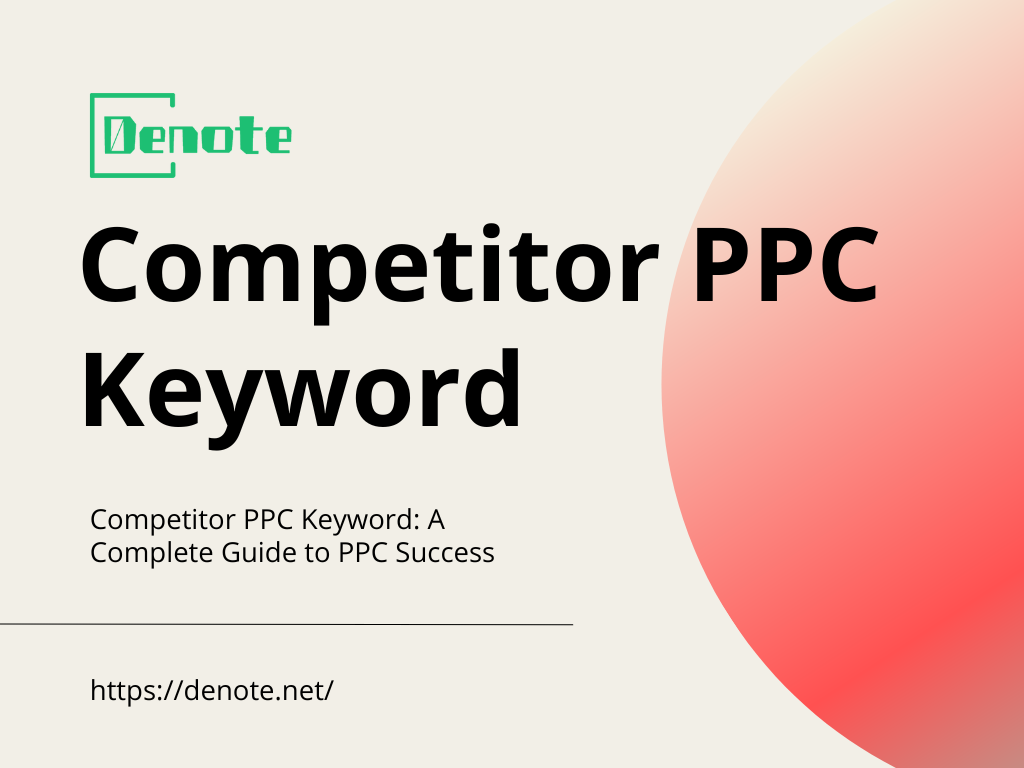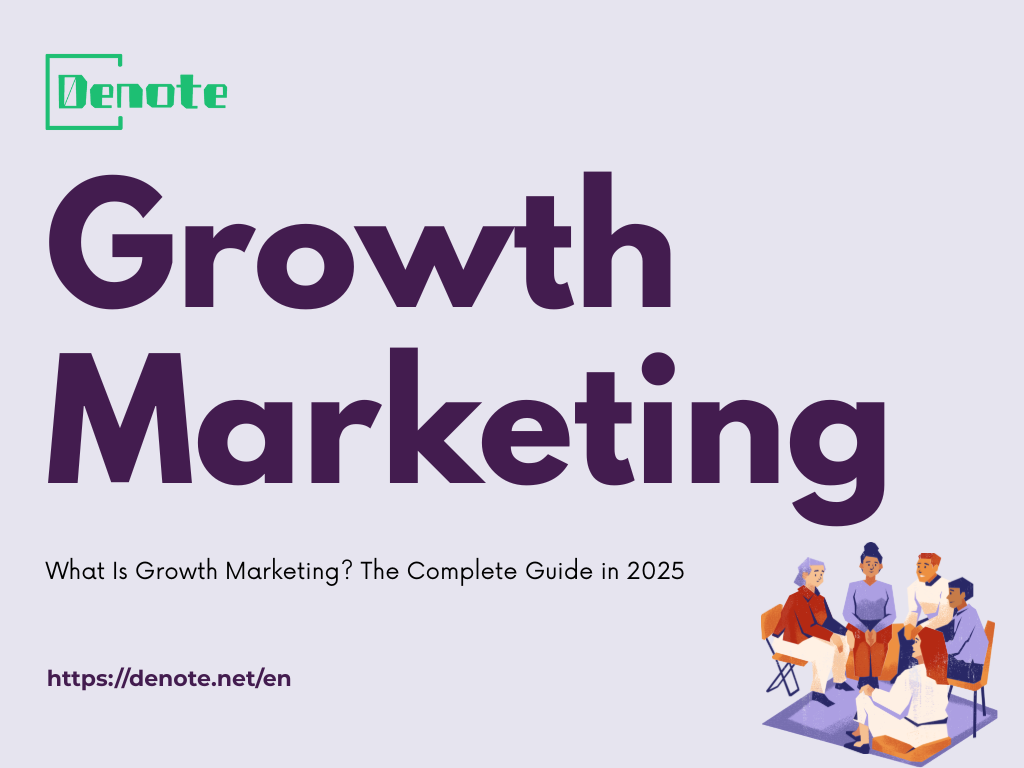Competitor PPC keyword: A Complete Guide to PPC Success

Table of Contents
- What Is a Competitor PPC Keyword?
- How Competitor Keywords Affect Your Campaigns
- Benefits of Analyzing Competitor PPC Keywords
- Tools to Research Competitor PPC Keywords
- Step-by-Step Guide to Competitor PPC Keyword Research
- Common Mistakes to Avoid in Competitor Keyword Analysis
- Case Study: Winning with Competitor PPC Keywords
- Conclusion
What Is a Competitor PPC Keyword?
A competitor PPC keyword is essentially any keyword that your rivals are bidding on in paid search campaigns. Think of it as a treasure map to your competitors’ most lucrative ad strategies. These keywords are not just random words—they represent what your competitors believe will drive clicks, leads, and conversions.
For marketers, understanding competitor PPC keywords is like having a spyglass that lets you peek over the shoulders of your rivals. By analyzing these keywords, you can uncover patterns in what works and what doesn’t, helping you make informed decisions on your own paid campaigns.
These keywords could range from general terms like “best running shoes” to highly specific long-tail phrases such as “women’s waterproof trail running sneakers under $100.” By focusing on competitor PPC keywords, you gain insight into their priorities, the language they use to attract customers, and even potential gaps in their strategy.
How Competitor Keywords Affect Your Campaigns
Competitor keywords don’t just sit quietly—they actively influence the dynamics of your campaigns. When your rivals target the same keywords, the competition for ad space increases, often driving up costs-per-click (CPC).
Imagine two chefs fighting over the same limited ingredients in a kitchen; if both bid aggressively for “vegan protein bars,” your cost to get a seat at that search results table shoots up. By understanding competitor PPC keywords, you can strategically adjust your bidding, refine your messaging, and sometimes discover “hidden alleyways”—less competitive but highly relevant keywords that your competitors are overlooking.
Moreover, competitor keyword analysis can reveal seasonal trends, emerging niches, and audience preferences. When used correctly, this information empowers marketers to stay one step ahead, turning potential roadblocks into opportunities for growth.
Benefits of Analyzing Competitor PPC Keywords
Understanding what keywords your competitors bid on offers several advantages. Let’s break down the main benefits:
| Benefit | Description | Example |
|---|---|---|
| Identify High-Performing Keywords | By researching competitor PPC keywords, you can uncover which terms consistently bring clicks, conversions, or high engagement. This saves you from trial-and-error in keyword selection. | Multiple competitors bidding on “affordable CRM software for small businesses” indicates it likely converts well. |
| Understand Competitor Ad Copy and Strategy | Competitor PPC analysis reveals how rivals craft ad copy, what call-to-actions resonate, and how landing pages are structured, giving you a holistic view of their paid search strategy. | Analyze ad text and landing page layout to see what triggers clicks. |
| Optimize Your Paid Search Budget | Knowing which competitor PPC keywords drive traffic and which underperform helps allocate budget effectively, maximizing ROI and avoiding wasteful spending. | Invest in high-performing keywords while avoiding generic low-conversion terms. |
Identify High-Performing Keywords
By researching competitor PPC keywords, you can uncover which terms consistently bring clicks, conversions, or high engagement. This is invaluable because it saves you from the trial-and-error approach that many marketers endure.
For example, if multiple competitors are bidding on “affordable CRM software for small businesses,” chances are this keyword converts well. Instead of guessing, you can focus your budget on these proven terms.
Understand Competitor Ad Copy and Strategy
Keywords are only half the story. Competitor PPC analysis often reveals how rivals craft their ad copy, what call-to-actions resonate with audiences, and how they structure landing pages. By examining both the keyword and the messaging attached to it, you gain a holistic view of their paid search strategy.
It’s like reading someone’s diary—but instead of secrets, you’re learning the exact triggers they use to convince customers to click.
Optimize Your Paid Search Budget
When you know which competitor PPC keywords are driving the most traffic and which are overpriced or underperforming, you can allocate your budget more effectively. This ensures you’re not wasting money on generic terms with low conversion potential and instead invest in high-ROI opportunities.
In short, competitor keyword analysis helps you spend smarter, not harder, maximizing the returns from every advertising dollar.
Tools to Research Competitor PPC Keywords
To conduct competitor PPC keyword research effectively, you need the right toolkit. Some options are paid and robust, while others are free but still surprisingly powerful.
Paid Tools Overview
Denote
Denote is a powerful competitor ad intelligence platform that allows you to spy on your competitors’ paid search campaigns. You can track the exact keywords they bid on, monitor ad spend, analyze daily impressions, and see geographic targeting. Denote is particularly effective for uncovering hidden competitor strategies and long-tail keywords that might be overlooked in traditional keyword research tools.

SEMrush
SEMrush is a veteran in the marketing space, offering comprehensive PPC competitor analysis. It shows the keywords competitors bid on, their estimated CPC, ad copy examples, and even landing page performance. SEMrush’s strength lies in its broad database and analytical depth, making it ideal for enterprises with complex campaigns.
SpyFu
SpyFu specializes in uncovering competitors’ PPC strategies by revealing historical data on keyword bidding, ad variations, and even competitor ranking trends. This tool is excellent for spotting long-term opportunities and identifying keywords that your competitors may be neglecting.
Free Tools Overview
Google Ads Keyword Planner
Google Ads Keyword Planner is a staple for many marketers. While primarily designed for keyword discovery, it can also provide insights into the competitive landscape by showing search volumes and estimated CPCs. Although it doesn’t reveal competitor ad copy, it’s a strong starting point for identifying high-potential keywords.
Facebook Ad Library
The Facebook Ad Library is a free tool that lets you see active ads from competitors across Facebook and Instagram. While it’s not strictly a PPC keyword tool, it provides inspiration for ad creatives and shows which campaigns are currently running—information that can inform your own keyword targeting and ad strategy.
Step-by-Step Guide to Competitor PPC Keyword Research
Understanding the theory is one thing, but applying it effectively is another. Here’s a structured approach to leveraging competitor PPC keywords for your campaigns.
Identify Your Main Competitors
Before diving into keyword research, you need to know who your competitors are. These could be direct competitors offering the same products or services, or indirect competitors targeting the same audience. Look for brands that frequently appear in paid search results for your core products or services.
Collect Their Keyword Data
Once competitors are identified, gather data on their paid search keywords using the tools mentioned above—Denote, SEMrush, SpyFu, or even free alternatives. Focus on keywords that appear consistently across multiple competitors, as these often indicate high-value search terms.
Analyze Keyword Performance
After collecting competitor PPC keywords, it’s crucial to assess their effectiveness. Not every keyword your rivals bid on is a golden ticket. Look for metrics like search volume, estimated CPC, ad position, and historical performance.
Think of it like tasting samples at a buffet—you don’t eat everything, only the dishes that truly delight your palate. Similarly, prioritize keywords that combine high relevance, manageable competition, and strong conversion potential. Tools like Denote can make this process much smoother by providing detailed insights into which keywords are driving clicks and conversions for your competitors.
Integrate Findings Into Your Campaigns
Once you’ve analyzed your competitor PPC keywords, it’s time to act. Incorporate high-performing terms into your campaigns, craft compelling ad copy, and design landing pages that convert. Don’t forget to experiment with long-tail variations and negative keywords to maximize ROI.
Integration is not just about copying what competitors do—it’s about learning from them, refining it, and adding your unique value proposition. This strategy ensures that you’re not just participating in the paid search arena, but actively outperforming rivals.
| Step | Description | Tips / Tools |
|---|---|---|
| Identify Your Main Competitors | Determine who your direct and indirect competitors are. Look for brands that frequently appear in paid search results for your core products or services. | Focus on competitors targeting the same audience and products. |
| Collect Their Keyword Data | Gather data on competitor paid search keywords using tools. Pay attention to keywords appearing consistently across multiple competitors, indicating high-value terms. | Tools: Denote, SEMrush, SpyFu, free alternatives |
| Analyze Keyword Performance | Assess the effectiveness of collected keywords. Consider metrics like search volume, estimated CPC, ad position, and historical performance. Prioritize keywords with high relevance, manageable competition, and strong conversion potential. | Tools like Denote provide detailed insights into clicks and conversions. |
| Integrate Findings Into Your Campaigns | Use high-performing keywords in campaigns, craft compelling ad copy, and design optimized landing pages. Experiment with long-tail variations and negative keywords to maximize ROI. | Refine competitor insights and add your unique value proposition. |
Common Mistakes to Avoid in Competitor Keyword Analysis
Even seasoned marketers can fall into traps when analyzing competitor PPC keywords. Being aware of these pitfalls ensures your efforts are effective rather than wasteful.
Ignoring Negative Keywords
A common error is focusing solely on positive keywords without considering negative keywords. Ignoring these can lead to wasted spend on irrelevant traffic. For example, if your competitor bids on “free trial software,” but you’re selling premium subscriptions, failing to exclude irrelevant searches could harm ROI.
Focusing Only on Top Competitors
While it’s tempting to focus on the market leaders, mid-tier or niche competitors often reveal untapped opportunities. Smaller players may target long-tail keywords that are easier to rank for and have higher conversion rates. Broadening your competitor pool ensures a more comprehensive keyword strategy.
Misinterpreting Search Intent
Not all clicks are created equal. Sometimes, the same keyword can signal different intentions. For instance, “best DSLR camera” might indicate buyers ready to purchase, whereas “DSLR camera reviews” suggests research intent. Misreading intent can lead to misallocated ad spend and poor campaign performance.
Case Study: Winning with Competitor PPC Keywords
Practical examples illustrate how competitor keyword research can transform campaigns from mediocre to outstanding.
Example of a Successful Campaign
Consider a mid-sized e-commerce company that sells eco-friendly home products. By analyzing competitor PPC keywords, they discovered that terms like “biodegradable kitchen sponges” were being heavily bid on by competitors but had moderate competition.
Using this insight, they created targeted campaigns with optimized ad copy, including benefits like “sustainable” and “long-lasting,” and linked ads to high-converting landing pages. Within a month, their ROI increased by 35%, and their cost-per-acquisition decreased significantly.
Key Takeaways
- Competitor PPC keywords reveal hidden opportunities.
- Combining keyword data with strong ad copy drives better performance.
- Tools like Denote provide actionable insights that save time and maximize efficiency.
- Monitoring and iterating campaigns based on competitor activity ensures sustained success.
Conclusion
Mastering competitor PPC keyword research is no longer optional—it’s essential for businesses aiming to outperform rivals in paid search marketing. By systematically analyzing competitor keywords, understanding their ad strategies, and leveraging tools like Denote, marketers can uncover hidden opportunities, optimize campaigns, and maximize ROI.
In the end, competitor PPC keyword research is less about imitation and more about inspiration. It empowers you to see what works, adapt it to your unique brand voice, and carve out your own space in the competitive digital landscape. Treat it like a treasure map—the more carefully you follow it, the richer your rewards.





